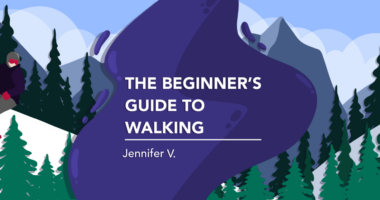My health challenges have made me more empathetic, not less
My NMOSD shouldn't minimize anyone else's struggles

I recently celebrated my mother’s birthday, which was lovely because it was a chance to see family members I hadn’t seen in a while. Our adult lives are busy, so regrettably, we don’t get enough time to sit around, eat a meal, and check in with one another.
I’m grateful my family didn’t ask me the dreaded question at this recent gathering, though I’d tried my best to prepare myself, just in case.
“How’s your health, Jen?”
I never know how to answer that question, which can trigger a full panic attack. Because I tend to minimize the severity of my neuromyelitis optica spectrum disorder (NMOSD), the responses I give can make me feel like a liar by omission. It’s not that I don’t want to share my health challenges; there’s just no fast way to explain what NMOSD is like every day.
Sometimes I’ll respond with a joke, like “I’m still here.” Other times I’ll give them the all-knowing shrug that simultaneously says, “Ya know, pretty crappy” and “I’m scared and just trying to deal with it.” I may give an honest answer, such as, “Well, I’m on new medication, and I hope it’s working,” but then I’ll quickly change the subject.
But regardless of how I respond, I always follow up by asking the same question in return: “How are you feeling?” I genuinely want to know. But occasionally, the person’s reply ends with a phrase that upsets me.
“It’s nothing compared with what you’re dealing with, so I shouldn’t complain.”
I know this statement is never said with ill intent. Often people are trying to protect me and avoid adding any stress to my life. However, I wish these people understood that they’re not complaining. I asked how they were feeling because I cared about their answer.
Empathy vs. sympathy
In one of the classes I teach, I highlight the difference between empathy and sympathy. To me, empathy is hearing someone else’s struggle and recalling a similar experience I’ve had so I can better understand what they’re going through. Sympathy, on the other hand, is hearing someone’s struggle and simply observing it. There’s a great short video by professor and author Brené Brown that I think of every time I explain the difference.
I highlight this distinction because struggling with NMOSD doesn’t mean I can’t be empathetic. If anything, I can better understand and relate to other people’s health struggles. So why, then, do some people assume I’d only be sympathetic?
My struggle with NMOSD has nothing to do with another person’s ailments. It shouldn’t minimize anyone else’s challenges. There’s no unspoken scale that compares diseases in which NMOSD is the ace card.
When I think back to conversations I’ve had with others, I can sometimes find myself miffed about what was said. I worked with my therapists about this feeling, and several things came to light.
The big theme is that I dislike feeling like a victim. When others minimize their challenges in comparison with my NMOSD, I feel like this disease is winning.
My other big revelation was that I need to feel as capable as I still am. While some may be trying to protect me by sparing me the details of their health challenges, it just makes me feel like they don’t think I can compartmentalize.
Certain aspects of living with NMOSD never get easier for me. It’s possible they get even harder. I’m still working on letting others love me in their own ways, even if that means sparing me the details of what they’re going through.
Note: Neuromyelitis News is strictly a news and information website about the disease. It does not provide medical advice, diagnosis, or treatment. This content is not intended to be a substitute for professional medical advice, diagnosis, or treatment. Always seek the advice of your physician or other qualified health providers with any questions you may have regarding a medical condition. Never disregard professional medical advice or delay in seeking it because of something you have read on this website. The opinions expressed in this column are not those of Neuromyelitis News or its parent company, Bionews, and are intended to spark discussion about issues pertaining to neuromyelitis optica spectrum disorder.






Leave a comment
Fill in the required fields to post. Your email address will not be published.